The Norwegian University of Science and Technology (NTNU) is a well-known public university in Norway and one of the largest research universities in Norway. Here are some key information about the Norwegian University of Science and Technology:
Overview
Founded: 1996 (from the merger of several institutions, with a history dating back to 1760)
Institutional nature: public
Main campus locations:
Trondheim, main campus
Ålesund
Gjøvik
History
NTNU was founded in 1996 through the merger of the Norwegian Institute of Technology (NTH), the Academy of Arts and Sciences (AVH), the Museum of Natural History and Archaeology (VM), the Faculty of Medicine (DMF) and the Trondheim Academy of Music (MiT).
The school's history can be traced back to the Trondheim Society (Det Trondhiemske Selskab) founded in 1760, which was recognized by the Norwegian royal family as the Royal Norwegian Society of Science and Literature (Det Kongelige Norske Videnskabers Selskab) in 1767.
School Strength
NTNU has approximately 42,000 students and more than 7,000 faculty and staff.
Offers undergraduate, master's and doctoral programs covering a wide range of disciplines.
Enjoys an international reputation in engineering, natural sciences, medicine, social sciences, arts and humanities.
The school has strong research capabilities, especially in marine engineering, energy technology, information technology, materials science and biotechnology.
Educational philosophy
Emphasizes practical learning and encourages students to develop skills through internships and real projects.
Focus on interdisciplinary cooperation, especially collaboration between different majors.
Attaches importance to international education, recruits international students, and offers courses taught in English.
Committed to innovation and technological development, maintains close ties with the industry, and ensures that course content meets industry needs.
Subject settings
Bachelor's degrees:
Engineering
Natural sciences
Medicine
Social sciences
Arts and humanities
Master's degrees:
Applied computing science
Biology
Biotechnology
Chemical engineering
Chemistry
Children's education
Communication technology
Creative music technology
Electronic engineering
Electronic system design
English linguistics and language acquisition
Environmental toxicology and chemistry
European studies
Fine arts
Geotechnical and geohazards
Globalization and sustainable development
Aquaculture health management
Global health
Global manufacturing management
Hydropower development
And other related master's programs in related fields
PhD programs:
Engineering
Natural sciences
Medicine
Social sciences
Arts and humanities
English-taught programs:
Most master's and doctoral programs are taught in English to attract international students.
Professional direction
Engineering: covers multiple fields such as mechanical engineering, electrical engineering, computer science, civil engineering, etc.
Natural sciences: including physics, chemistry, biology, earth sciences, etc.
Medicine: involves basic medicine, clinical medicine, public health, etc.
Social sciences: including economics, psychology, sociology, political science, etc.
Arts and Humanities: covers art history, fine arts, music, philosophy, etc.
Campus
Trondheim Campus:
Located in the center of Trondheim and the surrounding area, it is conveniently located.
The campus has modern teaching facilities, libraries, laboratories and social spaces.
The main campus Gløshaugen concentrates the departments of engineering and natural sciences, while Dragvoll concentrates the departments of humanities and social sciences.
Alesund Campus:
Focus on marine technology and ship design.
Gjøvik Campus:
Focus on information technology, computer science and media technology.
International Cooperation
NTNU actively participates in international exchange programs and has established partnerships with many higher education institutions around the world.
Provide exchange student programs to promote students' international vision and cultural exchanges.
As a member of the European University Association (EUA) and the University of the Arctic, NTNU has an important position in international education and research.
Expenses
NTNU is usually free for EU/EEA students, but a small registration fee is required.
For international students from non-EU/EEA countries, tuition fees vary depending on the major, generally between 6,000 and 14,000 euros per year. The specific fees should be consulted directly with the school or visit its official website for the latest information.
In terms of living costs, the cost of living in Trondheim is relatively high, but you still need to consider the costs of accommodation, food and personal expenses.
Application requirements
Applicants usually need to have a high school diploma or equivalent.
You need to pass an entrance exam or interview to demonstrate your interest in the chosen major and your ability to work in a related profession.
The English proficiency requirement is usually B2 level (according to the Common European Framework of Reference for Languages CEFR), and some majors may require higher levels.
-
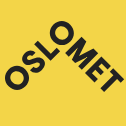
OsloMet - Oslo Metropolitan University
-
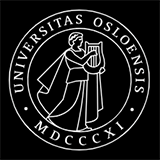
University of Oslo
-

University of South-Eastern Norway
-
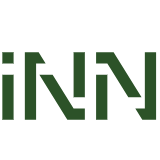
University of Inland Norway
-

Nord University
-
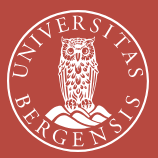
University of Bergen
-
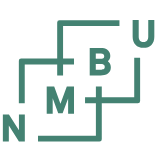
Norwegian University of Life Sciences
-

University of Stavanger
-

University of Agder
-
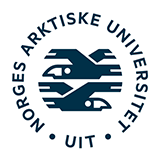
University of Tromsø
-

Mesoamerican University
-

Istmo University
-

Mariano Galvez University of Guatemala
-

Regional University of Guatemala
-

Galileo University
-

Francisco Marroquín University
-

Rafael Landívar University
-

University of the Valley of Guatemala
-

University of San Carlos of Guatemala
-

Technological Institute of Tlaxcala Plateau
-

Golfo University
-

Technological University of South Sonora
-

Technological University of Huejotzingo
-

Tizimín Institute of Technology
-

Chilpancingo Institute of Technology

